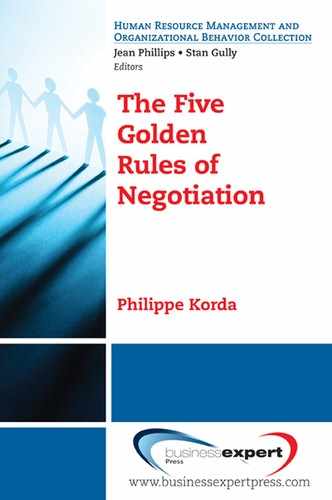In the Restaurant
Margaret PEAKE: At the end of the day, maybe I could have won you that deal.
Carl RITCHIE: I know. The workshop supervisor lay at the root of the problem. He did everything he could to torpedo my tests and favor one of our rivals.
Margaret PEAKE: You know, Carl, there is no purpose to be gained by passing judgment on a particular individual or her conduct.
Carl RITCHIE: Yet it’s something we often tend to do, particularly with people who favor our competitors!
Margaret PEAKE: In general, if you make an effort to understand that person’s objectives, resources, and constraints, you’ll realize that her behavior stems from a strategy that you’d definitely deploy yourself if you were in her shoes.
Carl RITCHIE: Do you mean that, for a particular deal, you can predict someone’s strategy in advance?
Margaret PEAKE: Yes. There’s always room for error, of course, but it can be done.
Carl RITCHIE: So, you can also analyze the strategy applied by other players within the group that’s making the decision?
Margaret PEAKE: Yes, it’s like chess—understanding your opponent’s game.
Carl RITCHIE: Do you play chess yourself?
Margaret PEAKE: Occasionally. And what interests me is not only understanding my opponent’s game but also influencing it. You should take up chess, Carl. It might have helped you clinch the deal.
For both buyer and seller, strategic analysis of the other party’s decision-making group and internal organization is a key factor in negotiations. Such analysis allows you to influence other players’ actions and sometimes get back into contention when all seems lost. There are distinct phases that you must recognize.
